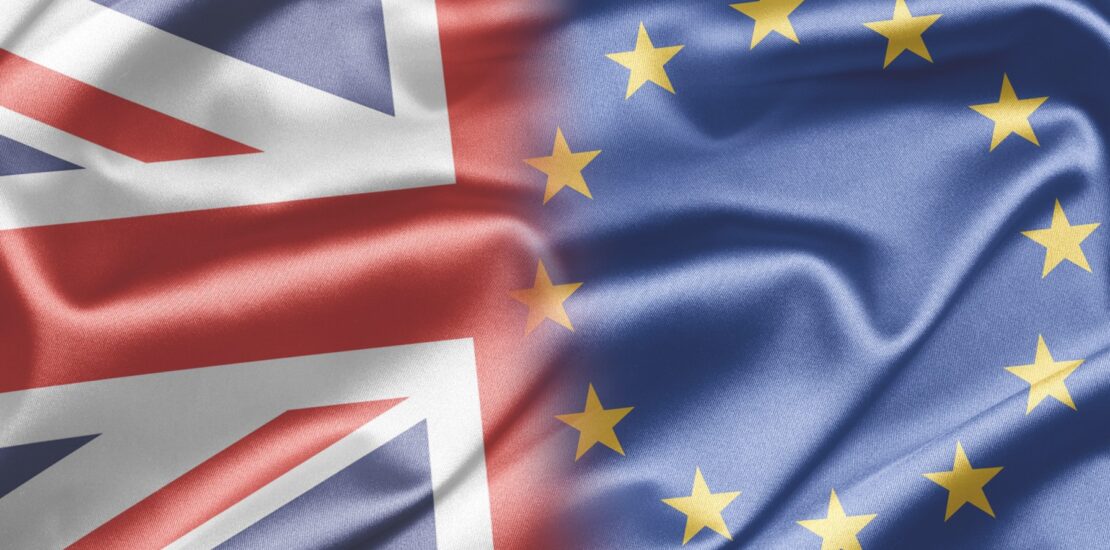BREXIT: Impact of December 2019 UK parliamentary election result on ACP horticultural exports to the UK
- 15/01/2020
- Posted by: Gaetan Dermien
- Category: United Kingdom

GREATER CERTAINTY UNTIL 1ST JANUARY 2021
After a period of uncertainty, there is now greater clarity regarding the completion of the UK’s withdrawal from the European Union (EU). With an 80-seat majority in the House of Commons, Prime Minister Johnson now has an unassailable majority for the passage of the revised EU27/UK Withdrawal Agreement through the UK Parliament, with this process now well under way.
So the UK is now firmly on track to leave the EU on 31st January 2020. Nevertheless, the provisions of the revised Withdrawal Agreement mean that the UK will remain part of the EU customs union and single market until at least 1st January 2021. During this time, existing EU trade agreements and arrangements will continue to govern ACP exports of fruit, vegetables and cut flowers into the UK, both those directly exported to the UK and those using triangular supply chains. This means there will be no changes in the terms and conditions of access for ACP exports to the UK until 1st January 2021.
POTENTIAL UNCERTAINTIES FOR EXPORTERS IN CAMEROON, CÔTE D’IVOIRE, GHANA AND KENYA
However, for exporters in a number of ACP countries, notably Cameroon, Côte d’Ivoire, Ghana and Kenya, significant uncertainties remain over the terms and conditions of access to the UK market after 1st January 2021. This relates to the interpretation of the start date for the Transitional Protection Mechanism (TPM) that the UK proposed (in October 2019) to set up for these countries, and which, once implemented, is to last for 18 months with no possibility of extension.
Will the start date of this 18-month transition period be deemed to have commenced from the date of notification to these ACP governments of the planned TPM (i.e. from October 2019), or will the 18-month period be deemed to start as from the date the UK officially leaves the EU customs union and single market (currently scheduled for 1st January 2021)?
Depending on the interpretation placed on the start date of the TPM, this could have implications for supply contract negotiations in the second half of 2020 for delivery of products in 2021. Securing a long-term bilateral trade agreement with the UK will be essential to securing long-term duty-free/quota-free access to the UK market for exporters from Cameroon, Côte d’Ivoire, Ghana and Kenya. This needs to be given appropriate priority by the governments of these countries.
WHAT WILL HAPPEN AFTER 1ST JANUARY 2021?
What happens after 1st January 2021 is still uncertain. While the EU is willing to allow an extension of the transition period specified in the Withdrawal Agreement for a further 2 years (i.e. until 1st January 2023), the UK Government is firmly committed to negotiating a comprehensive free trade area with the EU effective as from 1st January 2021, thereby allowing the UK to leave the EU customs union and single market without any trade disruption.
But there is considerable scepticism in the EU over the prospect of concluding such comprehensive trade negotiations within the short period of time to meet this deadline. While the UK will leave the EU on the 31st January 2020, the European Commission (EC) will only table a mandate for the conduct of negotiations on 1st February 2020, with the EU Council expected to agree the mandate – at best – by 28th February 2020.
Trade negotiations with the UK will then begin – at best – in early March 2020. Against this background, the EC believes that over this limited period it will only be possible to negotiate a ‘light’ free trade area agreement between the EU and the UK, with the extent of the agreement depending heavily on the UK’s willingness to remain aligned with EU standards and regulations.
Whether this ‘light’ EU27/UK free trade area agreement will cover the policy choices, trade administration and logistical arrangements required to keep ACP triangular supply chains functioning smoothly is by no means clear. Hopefully, the negotiation mandate will include an explicit commitment in the EC proposed negotiating mandate to address the policy, administrative and logistical issues likely to arise along triangular supply chains (i.e. primarily affecting short shelf-life fruit, vegetables and cut flowers). If such an explicit commitment is not included in the EC negotiating mandate, there is a risk that negotiators may lose sight of these specific ACP concerns in the wider, more urgent concerns the EC needs to address in the interests of EU producers and traders.
Note that the EC has established a deadline of 1st July 2020 for any formal UK notification of a desire to extend the transition period for a further 2 years while trade negotiations are competed. The UK’s new Conservative Government is, however, seeking to legislate to prevent any further extension of the transition period.
FUTURE UK MOST FAVOURED NATION TARIFFS AND THE VALUE OF ACP HORTICULTURAL SECTOR TARIFF PREFERENCES
A critical issue for ACP fruit, vegetable and cut flower exports to the UK market, whether exported directly or via EU27 countries (i.e. triangular supply chains), will be the future Most Favoured Nation (MFN) tariffs to be applied by the UK once it has officially left the EU customs union and single market and can apply its own autonomous MFN tariff schedule.
While the UK will not be able to apply its own autonomous MFN tariff schedule until 1st January 2021 at the earliest, there have already been extensive discussions on what the post-Brexit UK MFN tariff schedule should be, with strong pressures being exerted for the UK to pursue a ‘zero domestic production–zero MFN tariff approach”.
In March 2019, the UK published the first edition of its proposed temporary post-Brexit MFN tariff schedule, followed by a revision in October 2019. In the fruit and vegetable sectors, with the exception of bananas and fresh beans, this October 2019 temporary UK tariff schedule included:
- setting at zero all UK MFN tariffs on cut flowers, fruit and vegetable products;
- abandoning all EU minimum import price requirements and associated supplementary levies imposed on EU fruit and vegetable imports.
This raises a vitally important question for all ACP horticultural exporters serving the UK market – what will be the impact on the competitive position of ACP fruit, vegetable and cut flower export products resulting from the removal of current EU MFN tariffs and minimum import price requirements on imports from all third countries?
This is an issue which each individual ACP horticultural exporter will need to address, based on the current UK market components served and the functioning of their specific supply chains.
This is solely an overview of the temporary proposed autonomous UK MFN tariff schedule. The UK Government’s review of its long-term MFN tariff schedule in the first half of 2020 will involve:
- a public consultation on the structure of the UK’s future long-term MFN tariff schedule in the early months of 2020;
- a process of Parliamentary consultations on the UK Government’s proposed MFN tariff schedule;
- completion of the MFN tariff review by mid-2020 so that the UK’s trade partners can acknowledge the MFN tariffs to be applied once the UK leaves the EU customs union.
There is uncertainty around this review process regarding the starting point for this review. Will it be based on the proposed schedule dated October 2019? Or will the basis be the applied MFN tariffs set out in the EU’s MFN tariff schedule?
Again, this is a critically important issue for ACP horticultural exporters. If current EU MFN tariffs are the starting point, then there is potentially scope for ACP governments and exporters to engage the UK Government around the tariffs and minimum import price regime. However, if the starting point for the review is the UK’s proposal dated October 2019, then the room for engagement might be restricted to bananas and fresh beans, since in all other areas UK MFN tariffs will already have been set at zero

![(Re-)Discover the producers’ and SMEs innovations in agroecology presented at the PAFO-COLEAD Innovations Session n°13 PAFO-COLEAD – Innovation Series [BANNER]](https://news.colead.link/wp-content/uploads/2023/05/PAFO-COLEAD-Innovation-Series-BANNER-150x150.jpg)

